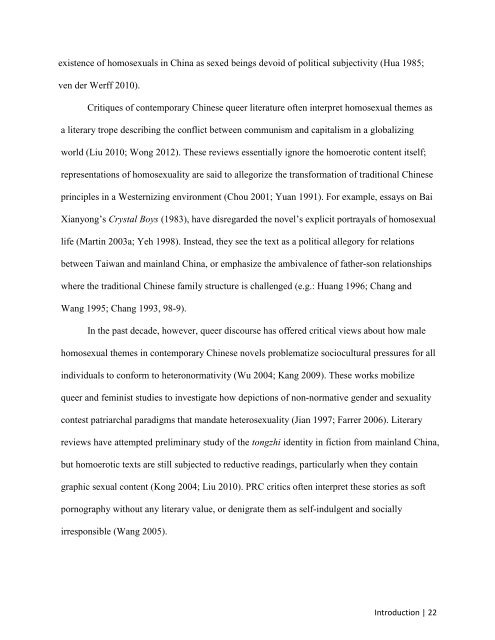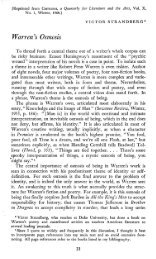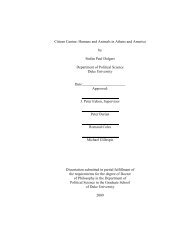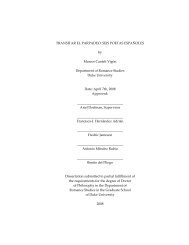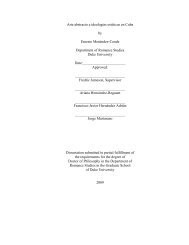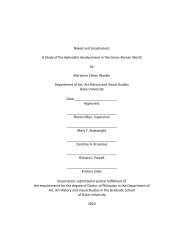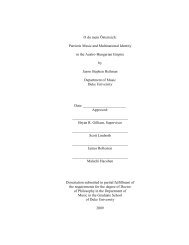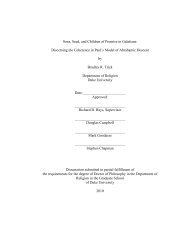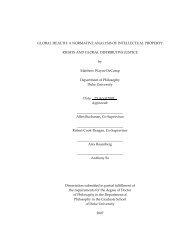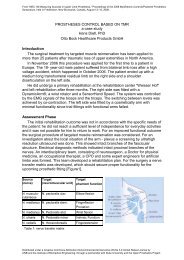View/Open - DukeSpace - Duke University
View/Open - DukeSpace - Duke University
View/Open - DukeSpace - Duke University
You also want an ePaper? Increase the reach of your titles
YUMPU automatically turns print PDFs into web optimized ePapers that Google loves.
existence of homosexuals in China as sexed beings devoid of political subjectivity (Hua 1985;<br />
ven der Werff 2010).<br />
Critiques of contemporary Chinese queer literature often interpret homosexual themes as<br />
a literary trope describing the conflict between communism and capitalism in a globalizing<br />
world (Liu 2010; Wong 2012). These reviews essentially ignore the homoerotic content itself;<br />
representations of homosexuality are said to allegorize the transformation of traditional Chinese<br />
principles in a Westernizing environment (Chou 2001; Yuan 1991). For example, essays on Bai<br />
Xianyong’s Crystal Boys (1983), have disregarded the novel’s explicit portrayals of homosexual<br />
life (Martin 2003a; Yeh 1998). Instead, they see the text as a political allegory for relations<br />
between Taiwan and mainland China, or emphasize the ambivalence of father-son relationships<br />
where the traditional Chinese family structure is challenged (e.g.: Huang 1996; Chang and<br />
Wang 1995; Chang 1993, 98-9).<br />
In the past decade, however, queer discourse has offered critical views about how male<br />
homosexual themes in contemporary Chinese novels problematize sociocultural pressures for all<br />
individuals to conform to heteronormativity (Wu 2004; Kang 2009). These works mobilize<br />
queer and feminist studies to investigate how depictions of non-normative gender and sexuality<br />
contest patriarchal paradigms that mandate heterosexuality (Jian 1997; Farrer 2006). Literary<br />
reviews have attempted preliminary study of the tongzhi identity in fiction from mainland China,<br />
but homoerotic texts are still subjected to reductive readings, particularly when they contain<br />
graphic sexual content (Kong 2004; Liu 2010). PRC critics often interpret these stories as soft<br />
pornography without any literary value, or denigrate them as self-indulgent and socially<br />
irresponsible (Wang 2005).<br />
Introduction | 22


